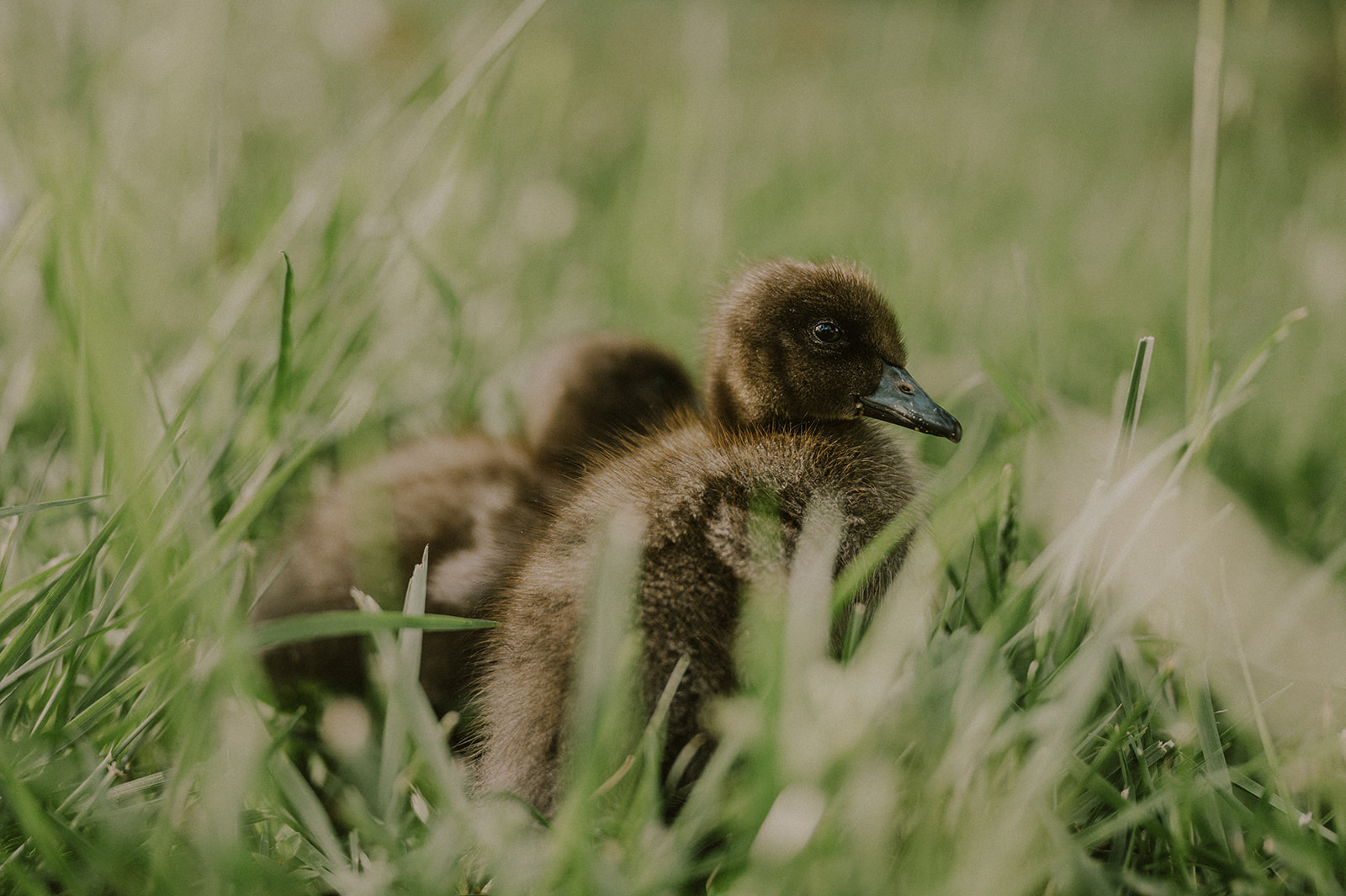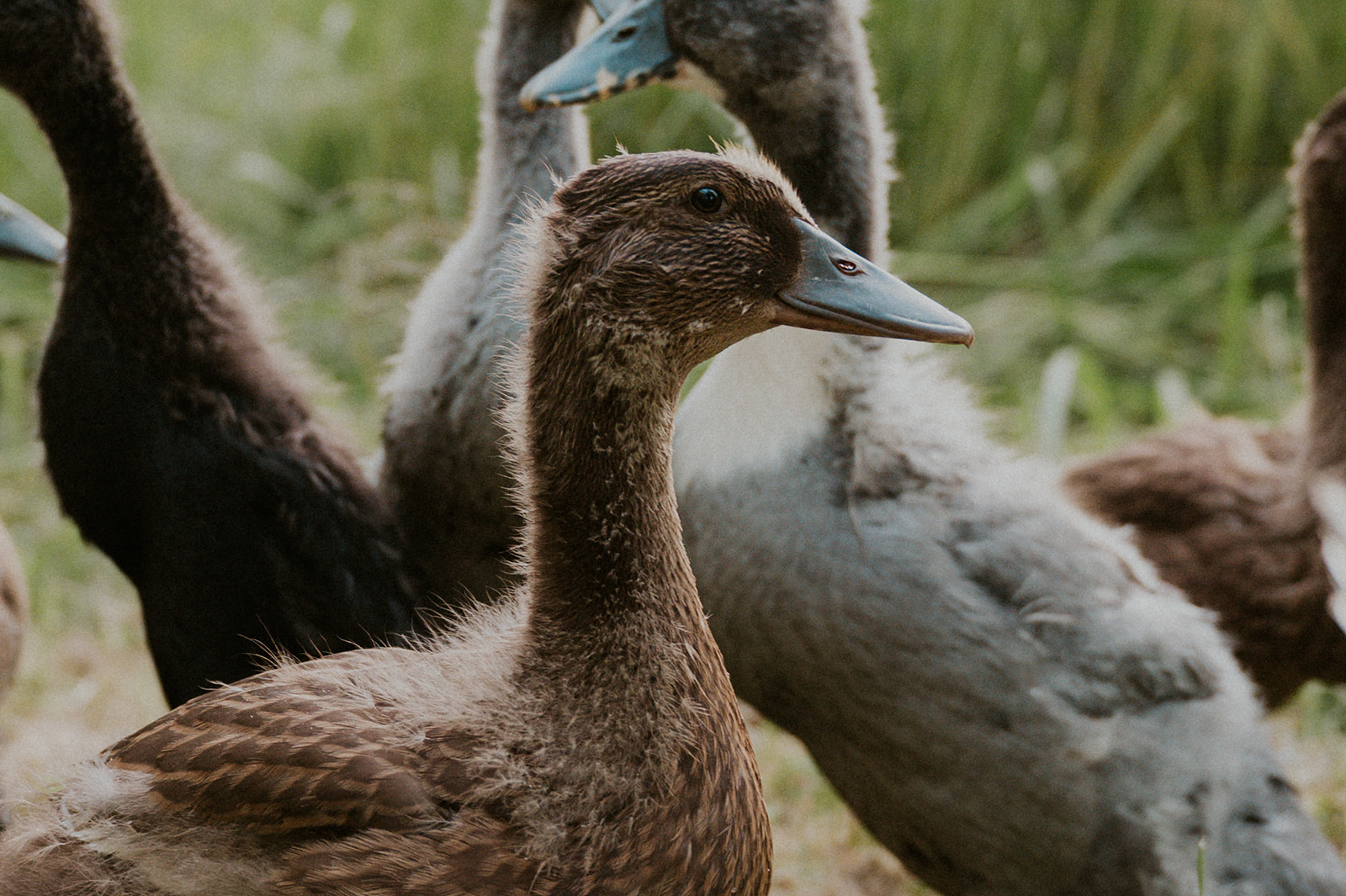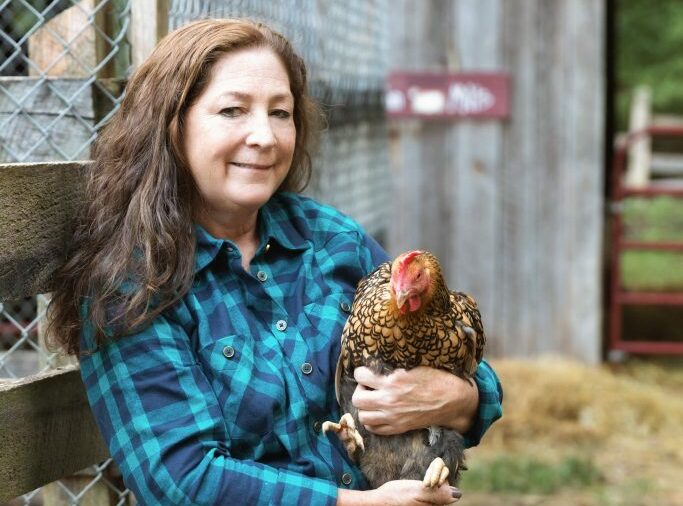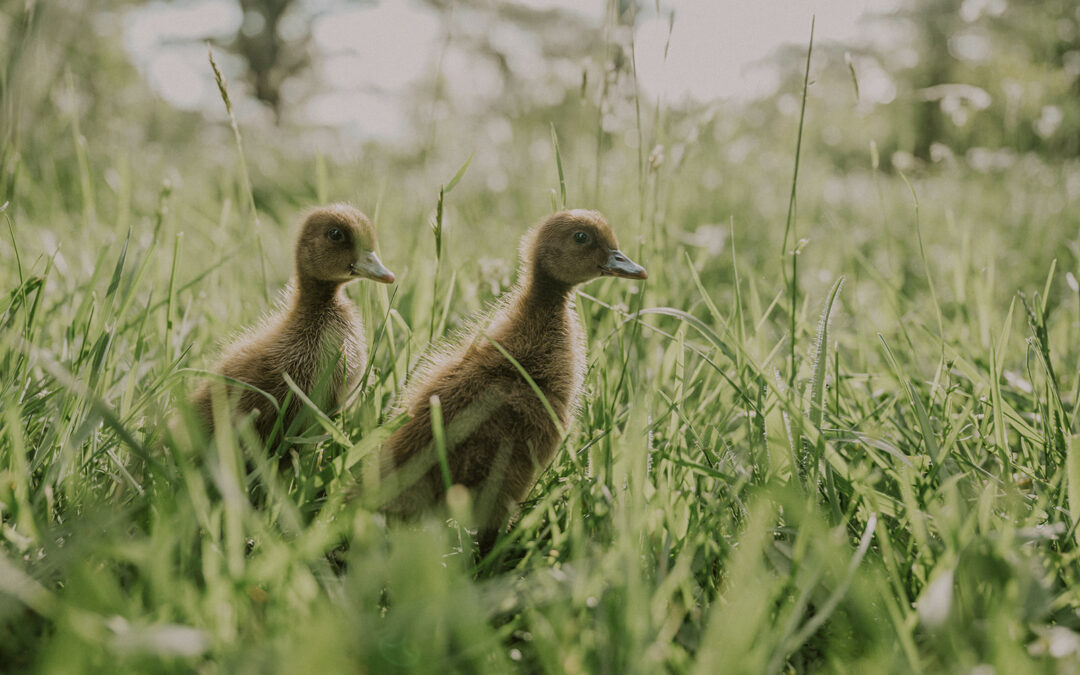Baby ducks are cuter than a bug’s ear, but what should ducklings eat? There are many commercial products available that will meet the nutritional needs of ducklings. However, you must also take into consideration how to support optimal bone growth in your baby ducks during their early stages of development.
If you have raised ducklings before, you have witnessed their incredible rate of growth. Blink, and suddenly those little fluff balls are twice as big as the day you brought them home. This fast growth rate means that you need to pay close attention to the nutritional needs of your ducklings. It is always ideal to provide your ducklings with feed that is specifically formulated for waterfowl. In the first two weeks of life, ducklings should be fed a waterfowl starter at 22-22.5% protein. If you are unable to find a waterfowl starter with that protein content, it is recommended that you use an 18-20% protein chick starter for the first four weeks of life. If you feed your ducklings using a ration that is not specifically formulated for waterfowl, it is very important that you supplement their feed with some form of niacin.
A Note About Niacin
Niacin is a form of vitamin B3 that is essential for optimal health in ducks of all ages. When raising ducklings, monitoring their niacin intake is particularly important because niacin is crucial for the development of strong, healthy bones. Niacin deficiency can lead to severe leg issues and lameness down the line.
It is important that you check the vitamin B3/niacin levels in your ducklings’ feed. If there is no niacin in their feed, or if there is not enough, you will need to offer them some sort of supplemental niacin. One of the easiest ways to supplement niacin in a duckling’s diet is to sprinkle brewer’s yeast over their feed. Brewer’s yeast is naturally high in B vitamins, and is very safe for ducklings to consume.
What do Ducklings eat After the Second Week?
After the second week of life, a duckling’s growth accelerates even more, and their nutritional needs change with their rapidly growing bodies. At this phase of growth, high protein rations can cause their bones to grow too quickly. This quick growth can lead to weak bones and twisted wing bones. From the age of three weeks until the first egg is laid, it is best to feed them a waterfowl grower with 17.5-19% protein.
The Importance of Good Bone Growth
Ducks that exhibit twisted wing bones due to nutrition may be fine if kept in captivity. However, when free ranging and foraging on their own, they are more at risk. Ducks with twisted wing bones are generally slower and can have difficulty escaping predators. Paying attention to the protein and niacin levels in your ducklings’ diet will help support them as they grow strong, healthy leg and wing bones.
Foraging
In addition to appropriate levels of protein and niacin, ducklings must also have access to grass and other foraged plants. It is best to begin offering your ducklings foraged foods after two weeks of age. According to Dave Holderread, author of Storey’s Guide to Raising Ducks, greens and foraged bugs are a crucial part of a duckling’s diet. He recommends that duck owners bring greens, weeds, and grasses to their ducks in addition to feeding a free choice commercial ration.
I would also add that it is beneficial to frequently dig a shallow hole for your ducklings to hunt for bugs. It only needs to be an inch or two below the surface for the ducklings to forage for insects. You can also add a bit of water to the hole for some mud puddle action!

Speaking of Water…
When you are thinking about your ducklings’ diet, don’t overlook the importance of clean water. While we think of ducks as creatures that enjoy a swim, it is not essential that they have a pool or pond. However, even if you don’t provide access to a pool feature every day, both ducklings and mature ducks enjoy a swim and preening session whenever possible.
Many people purchase inexpensive children’s wading pools for their ducks. Ducklings often have trouble getting in and out of a wading pool. They can also become chilled and die if not supervised. Until the ducklings are able to exit the pool without help, it is best to stick to a shallow container that they can exit safely.
A pan of clean water is the most ideal option for ducklings, and should be available to them at all times. Their water should be dumped and refilled twice a day, as ducks use it to wash off their muddy bills. The water level must be deep enough for the ducklings to fully dunk their heads beneath the surface. This allows them to wash out their nasal passages and keep their eyes clean.
What do Ducklings eat for Treats?
Are you wondering what snacks to feed your baby ducks? We love to spoil our pets, too. As long as what you offer contributes to an overall balanced diet, it is perfectly okay to treat your ducks.
Peas, cooked carrots, cooked green beans, bite sized pieces of watermelon, romaine lettuce, and chopped kale are some favorites of our duck flock. During the spring and summer, chickweed and smartweed grow prolifically on our property, so I like to pull up a couple of handfuls each day for the ducks to enjoy while in their run. Mealworms and grubs are also a good treat. However, I don’t offer these every day because they are high in protein.
The one food you should never give to either wild or domesticated ducks is bread. Bread disrupts a duck’s desire to seek healthy food. Many bread products are very high protein and carbohydrates, which can lead to abnormally fast growth in ducklings and nutritional imbalances in ducks of all ages. Just as with a high protein ration, the ducklings may develop weak bones or twisted wing bones as a result of consuming too much bread.

The Purpose of Ducklings on Your Property
All of the above should come with the caveat that the ultimate purpose of your ducks should be the guiding force behind what you feed them. It is important that you select a breed that will best suit your needs, and then decide your ultimate goal in raising ducklings.
When raising ducks for meat, quick growth and weight gain may take precedence over possible weak bone growth. After all, ducks raised for meat are not going to be kept for years. In that case, feeding a grower ration might be the best option for you.
Keeping ducks for eggs is a different situation. Laying hens require enough protein in their diet to allow them consistently produce high quality eggs. Ducks kept for egg laying will be part of your farm yard for several years. In this case, you will want your hens to have strong legs and well-formed wings.
Ducks make wonderful pets, too. Taking the time to manage protein levels and supplement with proper treats will give your pet ducks the best chance of having a long, healthy life.
My Recommendations
When researching what ducklings eat, it is important to remember that your baby ducks will greatly benefit from properly managed nutrition during early growth. Feed a 20-22.5% protein waterfowl starter ration for the first two weeks of life. Then, switch to a 17.5-19% waterfowl grower ration with increased forage intake. Their foraged food should include weeds, grass, leafy greens, and insects. If you are keeping ducks as layers, their feed may be switched to a traditional commercial layer feed when they reach point of lay. Pay close attention to their niacin intake, and supplement with brewer’s yeast if needed. Plenty of fresh water and frequent swimming opportunities will round out your ducklings’ happy, healthy lifestyle.

Janet Garman of Timber Creek Farm is an author, fiber artist, and farmer with a love for animals and sustainable living. Janet has a degree in large animal farm management and animal science from the University of Maryland, and helps others learn to raise livestock, chickens, ducks, rabbits, and manage a small farm. Her articles on keeping animals, small farms, and homesteading can be found on many popular websites. Janet is the author 50 Do-it-Yourself Projects for Keeping Chickens, Chickens from Scratch and many books about fiber arts and farming with animals.
Photos courtesy of Toni Walley Photography.

Notes from an Expert
An excerpt from: An Absolute Beginner’s Guide to Raising Backyard Ducks by Gail Damerow, due out on January 31, 2023
“Ducklings should have access to feed at all times. Feed them just enough twice a day to last until the next feeding. Since their appetites will grow at an alarming rate, you will need to constantly adjust the amount supplied at each feeding. Clean out the feeder frequently, taking care not to leave old, stale feed in the bottom or corners.”

